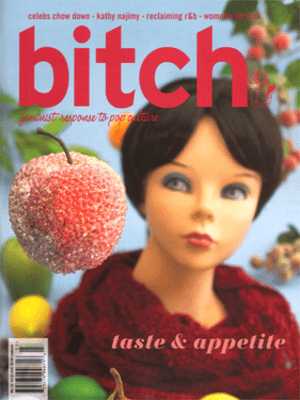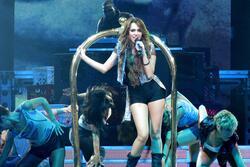Bitch, reclaimed?
The phrase pops into my head without invitation. It doesn’t need it. Maybe a teacher (female) has just given me a bad grade on an exam. Maybe I am in my room after an argument with a relative (again, female). Maybe I have just made a rude remark to a friend. It doesn’t really matter. On cue, three words emerge from the woodwork of my mind: “What a bitch!”
I find no enjoyment referring to other women as bitches. As a matter of fact, I hate it. Sometimes, my shame overwhelms me mid-phrase, and I am only able to get half-way through the final word: “What a bi…” before I chastise myself thoroughly. “Stop it. You are a feminist now, Eliza. You are supposed to be better than this.”
The word bitch is everywhere in pop culture. It can often be found in popular songs (“99 Problems” by Jay-Z, “Bitch Don’t Kill My Vibe” by Kendrick Lamar, as well as the music of pop artists like Adam Levine and Ed Sheeran) but also in places one might find surprising, such as the catchphrase (“Yeah bitch!”) of the Emmy award-wining Breaking Bad’s loveable screw-up Jesse Pinkman or in the title of the ABC sitcom Don’t Trust the B---- in Apartment 23. Indeed, “bitch” seems to be enjoying something of a renaissance lately. Now you can be a ratchet bitch, a rich bitch, a basic bitch, even a perfect bitch. While scrolling down my dash on Tumblr, I see a post with thousands of notes, a screenshot of Judy Garland’s Dorothy looking up in awe at the good witch Glinda, with the following caption: “Are you a good bitch or a bad bitch?”
“Bitch” can be a friendly term, and for some women the word is empowering. But facts are facts, and the fact is, the word “bitch” has decidedly unempowered origins. Originally meaning “female dog,” its common usage dates back to the fifteenth century, when it was used to mock a woman by suggesting she was promiscuous—a medieval slut-shaming device. But in the twentieth century, with the advent of suffrage and women’s rights, “bitch” became a catchall term for any woman who caused any sort of difficulty. It doesn’t take much for a woman to reach “bitch” status, and once the label is there it is hard to shake off. Men can be called bitches, of course, but the usage is rare. A man who is a bitch is a man who gets taken advantage of, while a woman who is a bitch is a woman who takes advantage.
I never want to be a slave to anyone or anything, much less a word. Yet despite living in a loving and equal home, the word “bitch: is so tied up in my brain, however subconsciously, that I can’t even access my rawer emotions without it immediately bubbling up. I cannot let myself embrace a word that preempts my own better nature. I fantasize about a day when saying “bitch” will go the way of the telegram and the record player.
Of course, they say the record player is coming back into fashion. And when I hear Nicki Minaj declare “Bitch I’m a Monster,” I am compelled, joyfully, to sing along. “Bitch” is a fun word to say and to sing—if it weren’t, it would not be so popular. I love the idea of reclaiming insulting language as my own, of taking a word and transforming its power to wound. But as both an avid student of history and a girl alive in the twenty first century, I am unable to completely disregard the pernicious quality of “bitch.” It serves to silence the women who act on their own accord, and it gets in the way of seeing the women in my own life as richly as they deserve to be seen.
I’d hate to see “bitch” go, but I’d love to watch it leave.
This piece was written as part of JWA’s Rising Voices Fellowship.








I love this post, Eliza! Great job :)